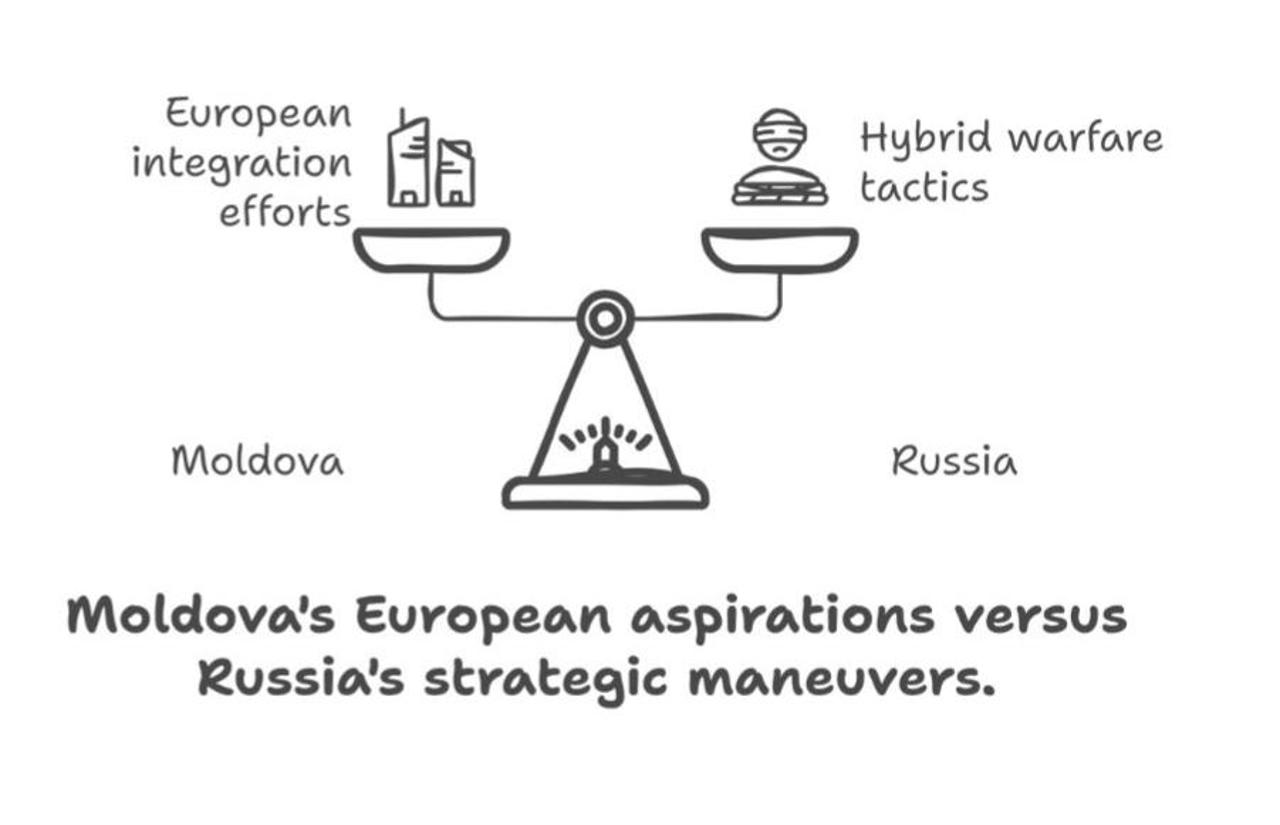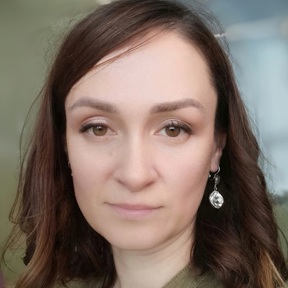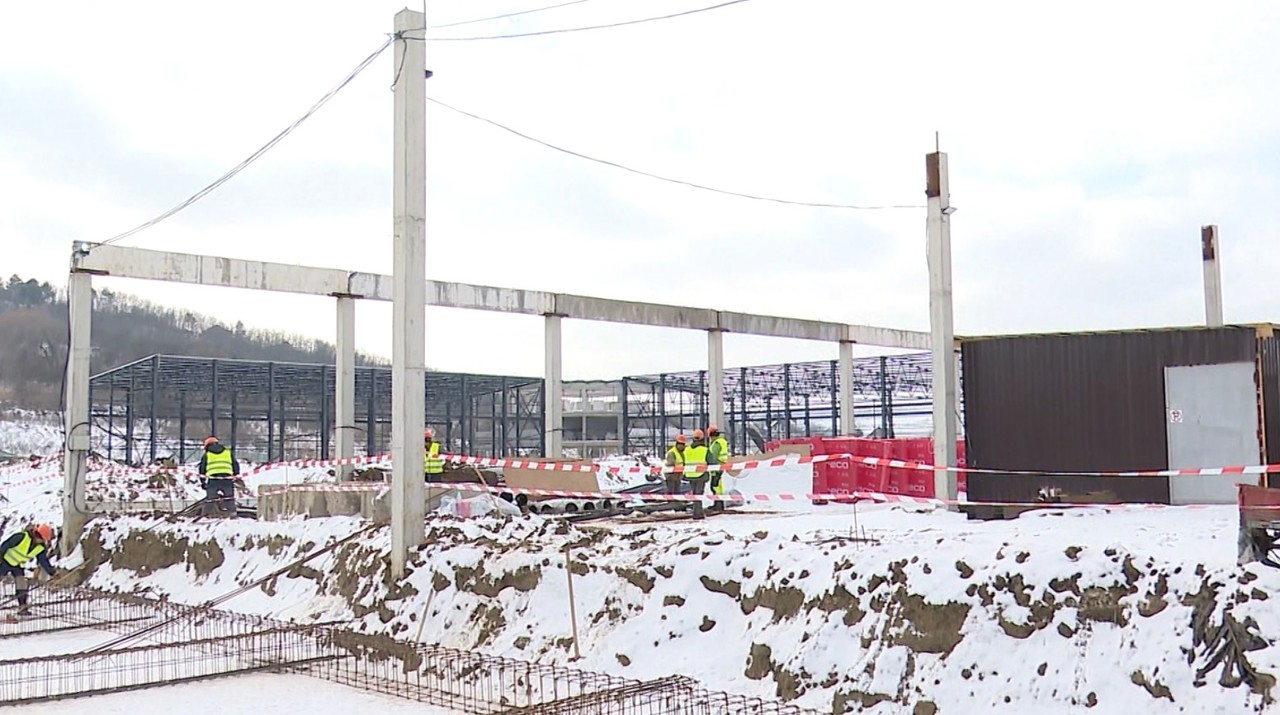Press review // Moldova in 2024: Political struggles, economic recovery, and EU ambitions
The national press highlights the main challenges of 2024 and offers predictions for the year ahead.

Europa Liberă reports that in 2024, Moldova marks a decade since signing the Association Agreement with the European Union, which paved the way for its European integration. The article outlines key stages in the bilateral cooperation, emphasizing that only in the last three years has Chișinău made rapid progress towards joining the European community, especially after the war in Ukraine demonstrated that there is no time to waste. Europa Liberă recalls that there were times when Moldova regressed more than it advanced and distanced itself from the “success story” label once attributed to it by European officials. A significant moment for Moldovan citizens occurred a few months after the signing of the Association Agreement in Vilnius in the fall of 2013: from April 28, 2014, Moldovans were granted the right to travel to Europe without visas. Moldova’s relationship with the EU was soon affected by an event that shook Chișinău’s political scene—the so-called “billion-dollar theft,” notes Europa Liberă. The relationship warmed again after the fall of the Plahotniuc regime in June 2019, when a government led by Maia Sandu, supported by the ACUM bloc (formed by the DA Platform and the Party of Action and Solidarity (PAS)) and the socialists, took power. In the five months of this government’s mandate, the European Union unlocked budget support for Moldova, transferring the first installments of the promised financial aid, summarizes Europa Liberă.
Ziarul Național notes that, since December 24, Maia Sandu began her second presidential term under extraordinarily difficult internal and external conditions. Editorialist Nicolae Negru observes that no predecessor, except possibly the first president, Mircea Snegur, has faced such complicated challenges. This is largely due to Moscow’s determined efforts to restore and reset its control over Moldova, according to Negru. The victory in the European integration referendum and in the presidential elections was felt in Moscow as a resounding slap to the empire’s face, Negru argues. Moscow is now intensifying preparations for the final battle—the parliamentary elections next year, which, if lost, would signify a “strategic defeat” on the Dniester River, as shameful for Russia as a strategic defeat on the Ukrainian front, concludes the editorialist of Ziarul Național.
“What do Russia’s falsifications rely on and how does Chișinău respond?” is the title of a debate organized by the IPN agency. The article recalls that earlier this week, Russia launched a false narrative about the escalation of the situation in Moldova. Specifically, the Russian Foreign Intelligence Service accused Chișinău of preparing a military operation in the Transnistrian region, referring to a supposed request from President Maia Sandu for the Cuciurgan power plant, located on the left bank of the Dniester, to be taken by military force. According to participants in the debate, this false claim appeared within the context of the hybrid war waged by Russia against Moldova and poses a serious threat to the country’s stability, peace, and security. Igor Boțan, a permanent expert on the project, emphasized that using the term “military operation” in such a context aims to amplify fears and confusion among the public. Security expert Gheorghe Bălan, former Deputy Prime Minister for Reintegration, mentioned during the same debate that the document reflects a deep dissatisfaction within Russian intelligence services with the fact that Maia Sandu is the president of Moldova and aims to delegitimize her position as the unifying center of society and the undisputed leader of the pro-European movement in Moldova.
Referring to the same debate, deschide.md quotes historian, political commentator, and former Ambassador of Moldova to Russia, Anatol Țăranu. The falsifications launched in the public space by the Russian Foreign Intelligence Service are serious warnings for Moldova, the publication reports. The historian describes the false claim regarding the preparation of a military operation in Transnistria as a strategic action in a hybrid war, but he suggests that Moscow’s authorities might have other hidden objectives. Moscow “seeks to explain or justify what will happen in Transnistria in the near future,” emphasizes Anatol Țăranu, mentioning that Russian authorities might want to shift blame for any upcoming energy crisis or humanitarian disaster in the Transnistrian region. Additionally, the falsehood spread in public reflects a strategy for the upcoming parliamentary elections, argues Anatol Țăranu. According to him, some members of Moldova’s legislature “act as agents of the Russian Federation.”
TVR Moldova presents a retrospective of Moldova’s economic year 2024, with predictions for 2025. “Moldova managed to steer its economy slightly from a very difficult situation in recent years, amid a health crisis, an energy crisis, rising inflation, and especially due to Russia’s military invasion of Ukraine. The year 2024 saw modest economic growth, and authorities hope that the €1.8 billion infusion from the EU for Moldova’s development will generate added value, which will positively impact citizens' quality of life.”
Moldova’s justice system is facing an acute personnel crisis, including with respect to ethical and financial integrity evaluations, according to General Prosecutor Ion Munteanu in an interview with Teleradio-Moldova. The official warned that this situation could lead to blockages both within the Prosecutor’s Office and in the courts. “There is an acute lack of professional staff in the prosecutor’s office. The insufficient number of well-trained personnel affects the efficiency of the activities the Prosecutor’s Office is responsible for.” The causes of this crisis are multiple, says the General Prosecutor: ranging from better opportunities in the private sector to some prosecutors’ reluctance to participate in the Vetting process. In the Anti-Corruption Prosecutor’s Office, which is undergoing an external evaluation, about 25% of prosecutors resigned: “They did not take on this exercise.” To prevent the prosecutor’s office from becoming paralyzed, Ion Munteanu explained that prosecutors from other subdivisions have been assigned to offices affected by resignations, but this remains a temporary solution. Meanwhile, authorities are seeking solutions to make the prosecutor’s profession more attractive, including improving working conditions and offering competitive salaries.
Moldpres Agency publishes an interview with Moldova’s Ambassador to Israel, Alexandr Roitman, discussing the challenges faced by Moldovans abroad, exports, and interpersonal relations between the two countries. The diplomat emphasizes that establishing effective communication with Moldovan citizens in Israel, during a time of military challenges, was one of his successful missions in 2024. “It’s a specific climate, a specific country, with an armed conflict, and the security situation is constantly changing, unfortunately deteriorating further. The goal of my communication was to explain to citizens what is happening in the country, what dangers exist, and how they can protect themselves. Not all citizens know Hebrew, and some instructions from the authorities are only issued in the state’s language. I’ve given over 100 interviews during critical moments, when the war began, the second phase—the conflict on the northern border. Our citizens are very receptive, they follow our information, and our Facebook page has over 11,000 followers,” recounts Moldova’s Ambassador to Israel, adding that legally, about 15,000 Moldovan citizens are working in this country, primarily in construction and as domestic caregivers.
Translation by Iurie Tataru







